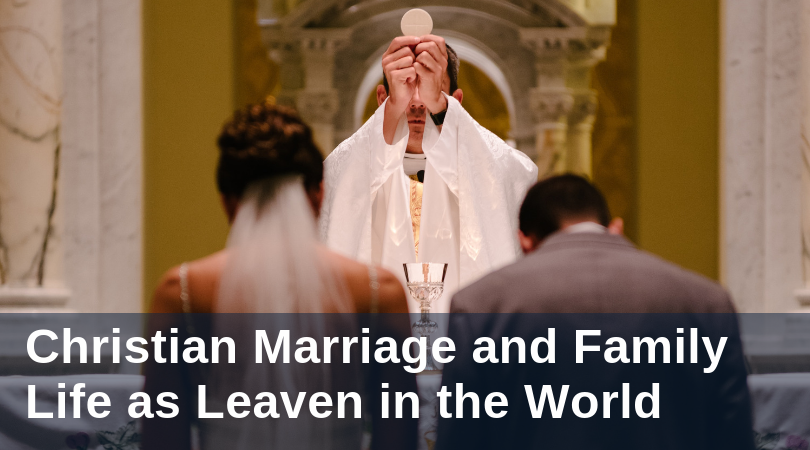
This past June, Archbishop José Gomez visited the University of Notre Dame to address Catholic leaders from around the country who were on campus for Liturgy Week and other conferences hosted by the McGrath Institute for Church Life. In keeping with Liturgy Week’s theme, “Liturgy and the Domestic Church,” the Archbishop’s talk centered on the importance of the family and the need to discover ways that the Church can nourish and support family life.
A place where families can find answers and support
As the prelate of Los Angeles, it was natural for Archbishop Gomez to begin his talk by citing a recent Hollywood film called First Reformed. In this movie, a pregnant woman goes to her pastor for help when she discovers that the child’s father doesn’t want the baby. The ensuing plot raises questions for the viewer like: Is it right to bring a child into a world characterized by violence and a scarcity of resources? To whom can one turn for guidance in times like these? Are Christian leaders just as confused as the rest of us?
While Archbishop Gomez would probably not recommend this film (or the solutions it implies), the example in First Reformed is a good one because it points to an overarching confusion about family life and vocation that is very real for many families and couples today. This confusion is exacerbated by not knowing where to turn for answers. Put in stark terms by the Archbishop, instead of asking Our Lord and Our Lady for help, married couples “go to Google to find the answer to their questions” like, Should I have kids?. Search engines are good for many things, but family counsel is not one of them.
What can (we as) the Church do to help families?
The confusion felt by families today leads to questions for the Church to answer about her own mission in the world. Namely, what case can be made for marriage and the family in light of Christ?
Using his Archdiocese of Los Angeles as an example, Archbishop Gomez suggested some courses of action for catechists especially, but also for all people involved in the life of the Church:
- Promote marriage and family as sacred institutions at the heart of a civilization of love.
- Support pastors and parents in the parish and help them to form faith communities.
- Give continuity to the ministry of formation within the parish; prepare the parish family for not only for individual sacraments, but also and especially for a sacramental life.
- See the sacraments as the beginning and nourishment of a relationship with God, a relationship that includes marriage for those called to that state of life.
- Rediscover the radical newness of Christ’s teaching on the family, which comes to us both from Scripture and Tradition.
Overall, the key task for the Church is to reaffirm what is distinctive about Christian marriage: to live in this world as beloved sons and daughters of God, brothers and sisters in Christ, so that we might recognize and respond to the call and commission to become blessed mothers and fathers in a faithful family.
A theology of life and living
As Archbishop Gomez reflected, “A society that does not value life—children—does not understand what gives life meaning.” Children are indeed valuable in the order of nature, but there is more to life and children than progeny. God’s sign for the world was a child wrapped in swaddling clothes and lying in a manger. God became a child so that God’s children might become God. A society that does not see this marvelous and glorious reality will have little to do with the gift of life.
Sharing the Gospel in regard to marriage and family life will require more of us than words. To return to marriage and the family as God desires and society deeply needs, we must live as the liturgical beings we are called to be, manifesting a theology of the ordinary by praying as a family, sharing our struggles, and working, serving, and living with one another as Christians. This is the work of sanctification. We are called to become the image and likeness in which we were created. This begins by looking to the Incarnation, by welcoming God in the Christ-Child, and, in imitation of Christ, welcoming marriage and children too.
Watch the video of Archbishop Gomez's address here.
Featured Image: Josh Applegate via Unsplash


